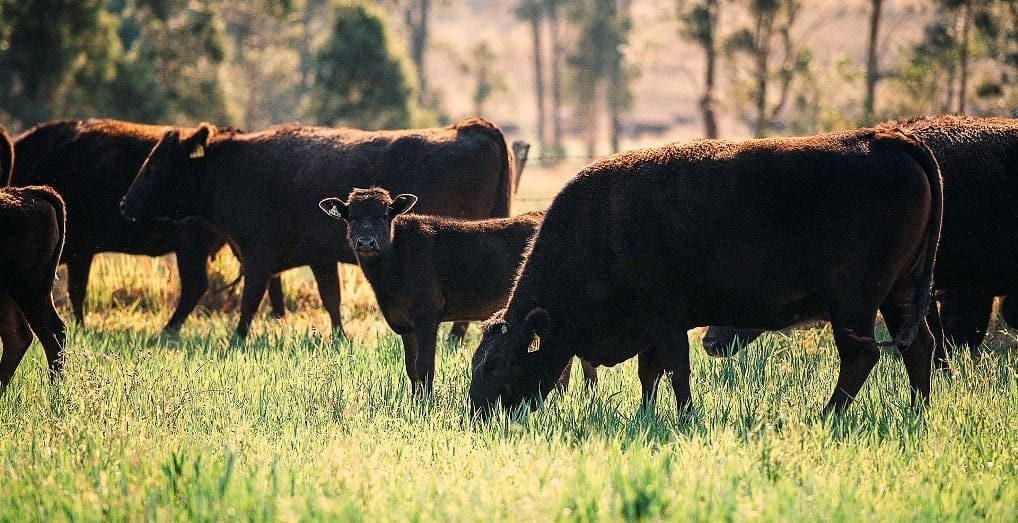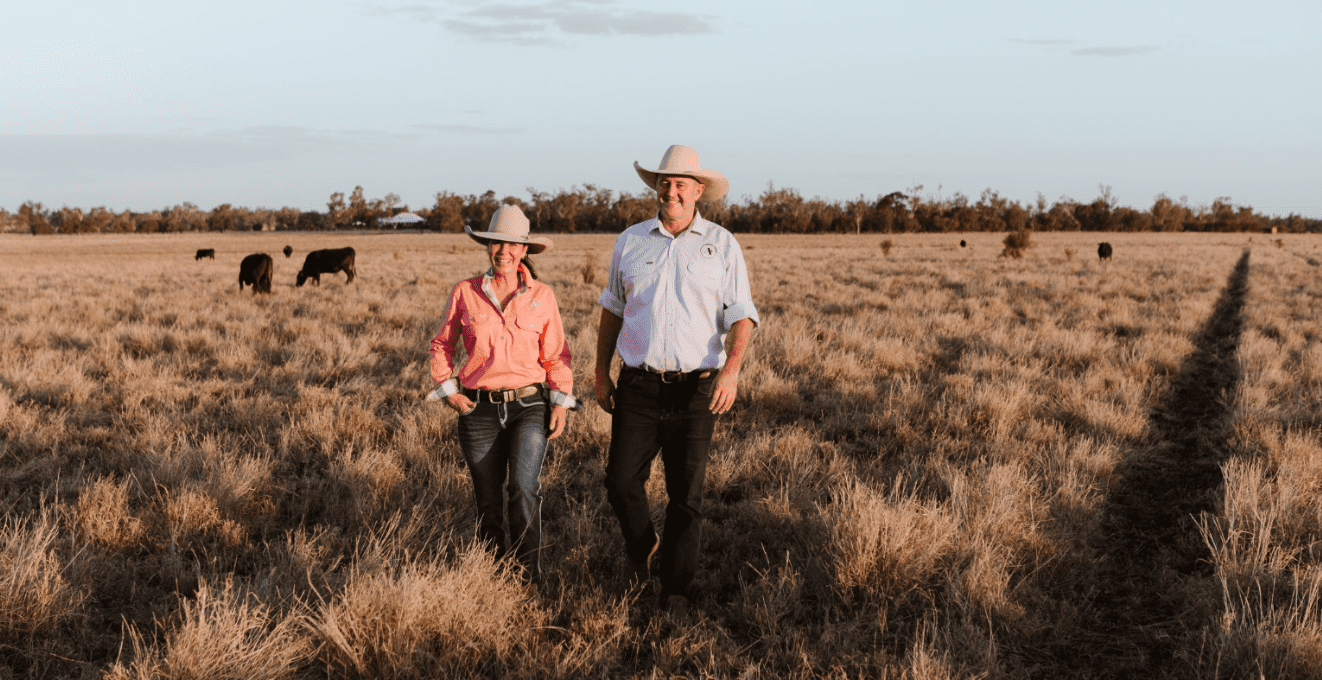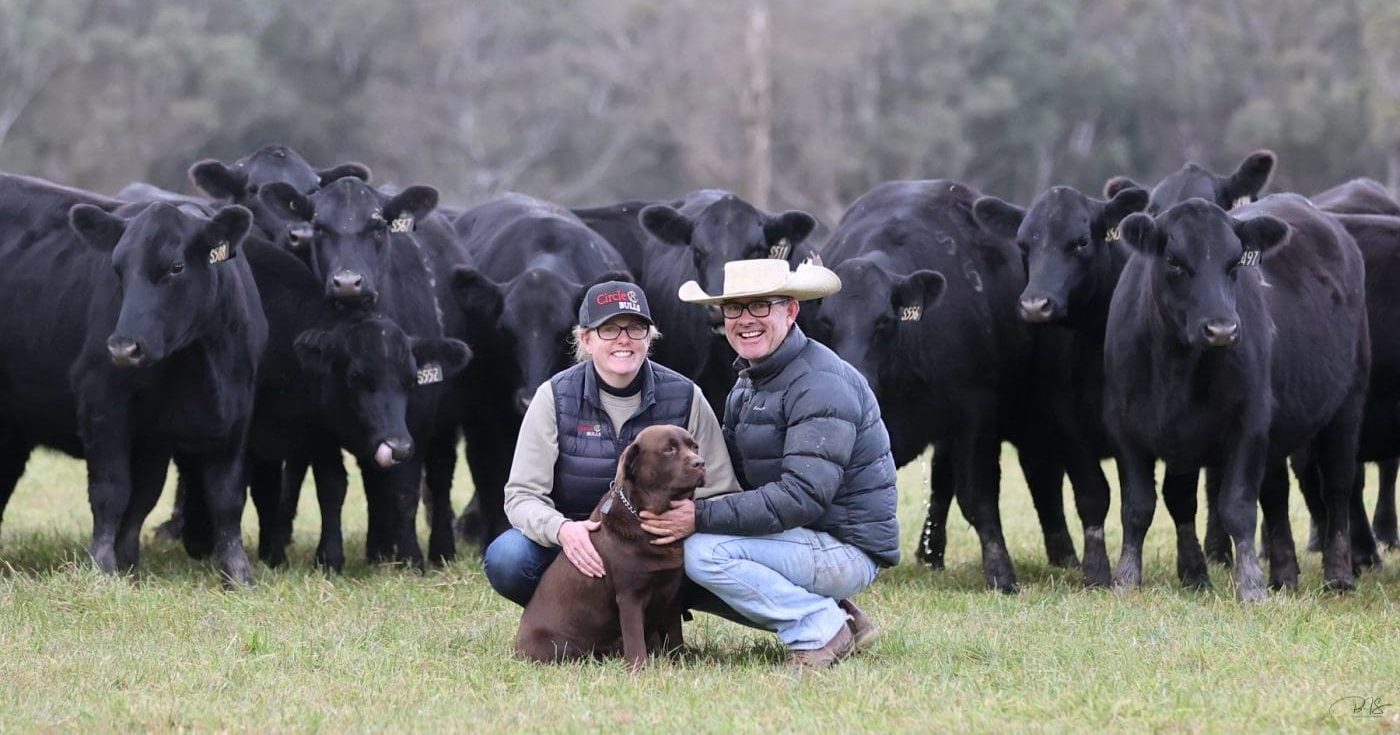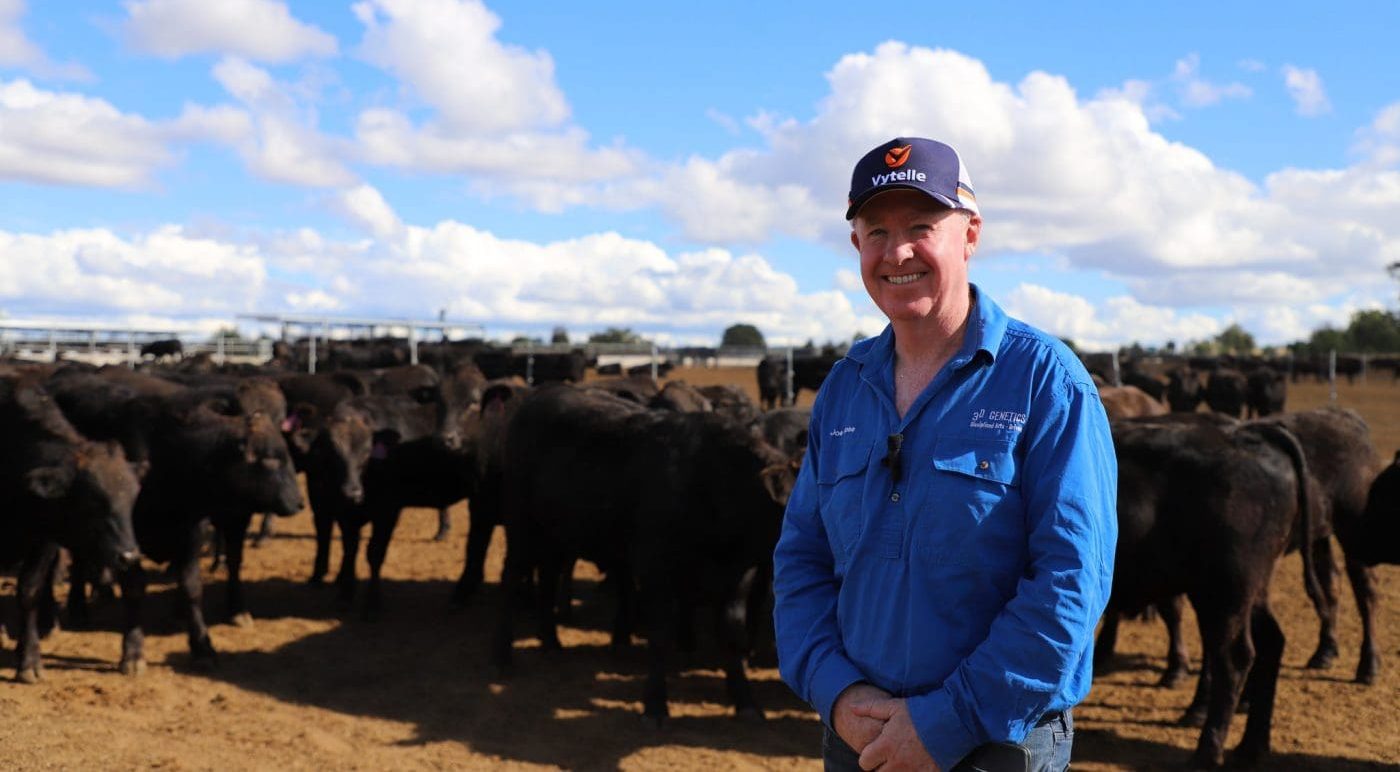
FRESH embryo transfer has long been the gold standard in advanced cattle breeding.
But as genetics become more valuable and logistics more complex, precision livestock company Vytelle is taking an innovative approach to freezing embryos– and as three Wagyu producers share – it’s changing the game.
Vytelle is helping cattle producers worldwide optimise their Wagyu herds, revolutionising the embryo freezing process to now average a 49 percent conception rate globally on frozen transfers with just a 6pc gap between its fresh transfers at 55pc.
How? Well it turns out there’s more than a few parallels between a cold beer and a frozen embryo.
From brewing to breeding with Vytelle
Dr Bruno Sanches is the Vice President of Operations at Vytelle. Based in the United States, he completed his PhD on frozen embryo technology.
He describes a disappointing (and costly) scenario experienced all too often by producers undertaking in vitro fertilisation (IVF) especially with frozen embryo programs.
He simplified the complexities by asking you to imagine an embryo as a beer bottle. The glass bottle is the embryo’s membrane, made of lipids and proteins. If you overfill that bottle with lipids – like overfeeding an embryo – it becomes a ticking time bomb during freezing.
When you freeze, you first remove water from the embryo, just like ensuring no excess pressure in a beer bottle. But if the “bottle” is packed with too much fat, the water can’t fully escape, bounces back, and the embryo “explodes.”
Vytelle takes a different approach using their hormone free collection process, proprietary media suite for embryo protection, and the Direct Thaw or DT method – creating lean, healthy embryos that can handle the freezing process without bursting.
“It’s about quality over quantity, like brewing a perfect batch instead of mass-producing a subpar one,” Bruno said.
“Competitors might focus on making more embryos, but if they’re overfed and unhealthy, they won’t survive the freeze. Vytelle’s method ensures embryos are built to last.”
Timing makes the difference
Fresh transfers require a synchronisation of the uterus of the recipient with the age of the embryo. A seven day old embryo requires a precise environment of a seven day pregnancy,
meaning the cow must have been in heat seven days prior, adding challenges when using fresh embryos.
Frozen embryos represent a transformative advancement in cattle breeding, particularly crucial for countries like Australia with vast distances and complex logistics.
As Bruno explained, Vytelle’s technology allows embryos to remain viable for years, giving producers unprecedented flexibility in their breeding programs.
“This strategic approach enables producers to optimise their breeding programs by transferring grade 2 embryos fresh while preserving grade 1 embryos for future use, ultimately allowing for more concentrated calving periods and better coordination with recipient availability,” Bruno said.
“Perhaps more importantly, increasing frozen embryos results eliminates the logistical risks associated with fresh embryo transport over long distances which is a game-changing advantage for large-scale operations in expansive territories.”
The beer-friendly guide to transferring frozen embryos
There’s a bit more to Vytelle’s Direct Thaw (DT) method than cracking open a cold one – but the similarities remain.
- Step one: Air thaw the embryo for 10 seconds in a room temperature of 60-80°F (15-27°C) – like pulling a beer out of the fridge.
- Step two: Warm it in a 95°F (35°C) water bath for 30 seconds – think of it as letting your frosty brew settle just right.
- Step three: Load into a warmed transfer gun and implant – time to serve it up, perfectly prepped.
Vytelle’s DT method – and the proprietary media that protects the embryo in the thaw stage – reduces handling and improves success rates. Similar to the way a perfectly timed brew delivers the best flavour, embryos are frozen at the ideal stage for optimal results.
“With 95pc graded as top quality Grade 1 embryos, you’re getting the best of the best,” Bruno said.
“Frozen embryos, like a well-stocked beer stash, give you the flexibility to match your goals, whether it’s a tight calving window or year-round dairy production.”
Vytelle powering Arubial Wagyu’s genetic gains

Fourth-generation Queensland grazier Laird Morgan and his wife Sonia have been building the Fullblood Wagyu herd at Arubial Wagyu since venturing to Yeppoon in 2015 for the Annual Wagyu Conference.
In the past 18-months they’ve shifted their focus to quality over quantity, identifying Vytelle’s IVF technology as an integral part of their genetic progress.
“It’s allowed us to shorten our generational turnover, stockpile embryos from our elite females, and the results on our frozen embryos are now very similar to what we previously had on fresh,” Laird said.
Arubial Wagyu is consistently achieving 50-55% conception rate since beginning IVF through the Ovum Pick-Up (OPU) process, with oocytes collected directly from the ovaries of donors and then fertilised in a lab and cultured into embryos. It previously utilised Multiple Ovulation and Embryo Transfer (MOET), which relies on hormone treatment to stimulate multiple ovulations in a donor cow, followed by embryo flushing and transfer.
“IVF is more convenient and we’re achieving the same results without needling donor cows twice a day for a week,” Laird said. “Now it’s just run your cow up the crush, take the oocytes and we’re off and away.”
Vytelle IVF driving the next chapter for Circle 8 Bulls

Jeremy Cooper and his wife Carmen founded Circle 8 Bulls, a commercial seedstock operation on the Southern Tablelands, New South Wales.
After 34 years as Angus breeders, the couple transitioned out of the breed in early-2025 to solely focus on the Wagyu operation they began 10 years ago, identifying the enormous growth potential in the sector as their motivation.
To date, Circle 8 Bulls has provided bulls into an F1 terminal supply chain and 90% of calves have been achieved through MOET. Having now reached critical mass, the Coopers brought in Vytelle to streamline the process through IVF. Jeremy said the process allows for embryo stockpiling throughout the year, allowing the business to work on precise operations. And while it was a big leap from MOET to IVF, Jeremy said it was a crucial step in their growth journey.
“The reality is it’s very commercially documented that historically the pregnancy rates haven’t been as on par with MOET but that’s changing as companies like Vytelle are improving their protocols in their labs,” Jeremy said.
“We’re now taking what we view as the better females with higher value genetics, and IVF allows us to do that with a reduced amount of cattle going forward.”
For Jeremy the key to the success of IVF at Circle 8 Bulls is simplicity – and using only the cream of the crop.
“We’re a small operation and like any operation, it’s all about margins. So we’re very conscious and critical of where we’re spending our dollars and what return we’re getting from that,” he said.
“With IVF you want to make sure that you’re creating cattle that will make exponential genetic gain to warrant the additional cost. Keep it simple and just do the basics, but do the basics well because it’s those little one percenters that make the difference,” he said.
3D Genetics finds its edge with Vytelle IVF

Joe Grose, 3D Genetics General Manager
Based at Inverell, New South Wales, 3D Genetics is a top source of male Wagyu genetics providing approximately 15pc of the industry’s bull power.
3D Genetics is on a mission to seek out the latest technology and collaborate with scientists to ensure their genetic selection is driven by data, not opinion.
Looking to boost pregnancy rates, grow their herd faster, and breed better-performing cattle – ones that grow quickly, calve easily, and produce high-quality beef – 3D Genetics recently turned to Vytelle to use two of its products: Vytelle SENSE™ which tracks individual feed intake and weight, helping them identify top-performing animals without stressing the herd; and Vytelle ADVANCE™, a cutting-edge IVF system vs tool, to multiply elite genetics and build a more productive, profitable herd.
In its first year using Vytelle ADVANCE, 3D Genetics put in 204 fresh Vytelle IVF embryos, alongside 195 frozen MOET embryos, in order to compare the two methods.
A 35-day pregnancy test showed that 3D Genetics achieved a 65pc pregnancy rate from the Vytelle embryos, compared to 66pc from the MOET ones – a ‘super exciting’ result, Joe Grose, 3D Genetics General Manager, said.
“There’s no doubt Vytelle’s IVF technology is a world apart from what’s been happening in Australia,” Joe said. “That’s why we’ve come back for our second year.”
Vytelle’s frozen IVF technology is flipping the script on Wagyu breeding. With higher success rates, more flexibility, and a simpler, streamlined process, producers are seeing better genetics without the hassle. As more and more Wagyu operations embrace IVF, the future of breeding looks faster, smarter, and more efficient – and Vytelle is leading the charge.

HAVE YOUR SAY